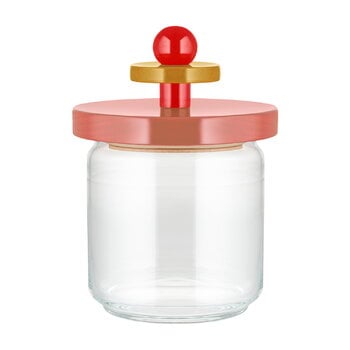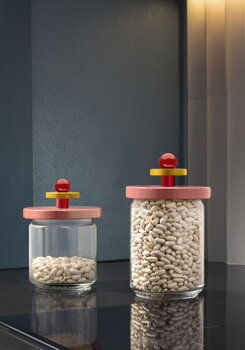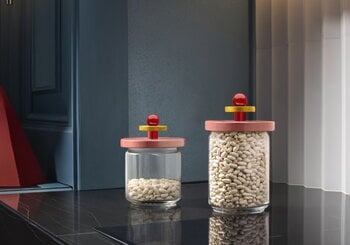Alessi's ES16 kitchen jar from the Twergi collection is an extraordinarily expressive storage jar created by the legendary Italian designer Ettore Sottsass. Shaped like a small totem, the beechwood lid ensures an airtight seal for flour, sugar, pasta or anything you like to store in a glass jar.
First launched in 1989, Alessi's Twergi collection consists of wooden objects inspired by the ancient tradition of woodturning. In Italy's woodwork-famous Strona Valley, the word "twergi" is local dialect for "elf". Elves were believed to be both mischief-makers and teachers, for example, in the craft of woodworking. Each item in the Twergi collection is made in Italy, with some parts crafted by hand on a lathe.











